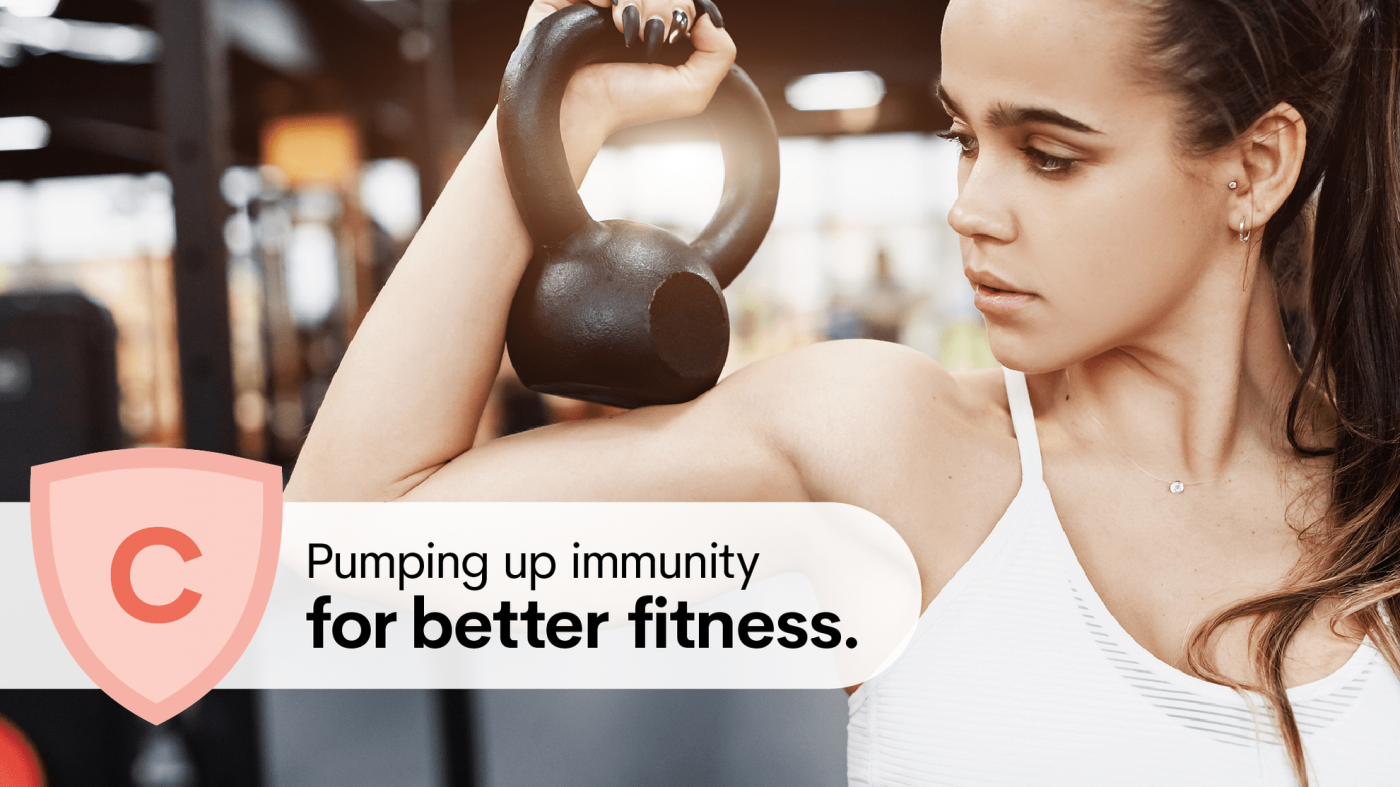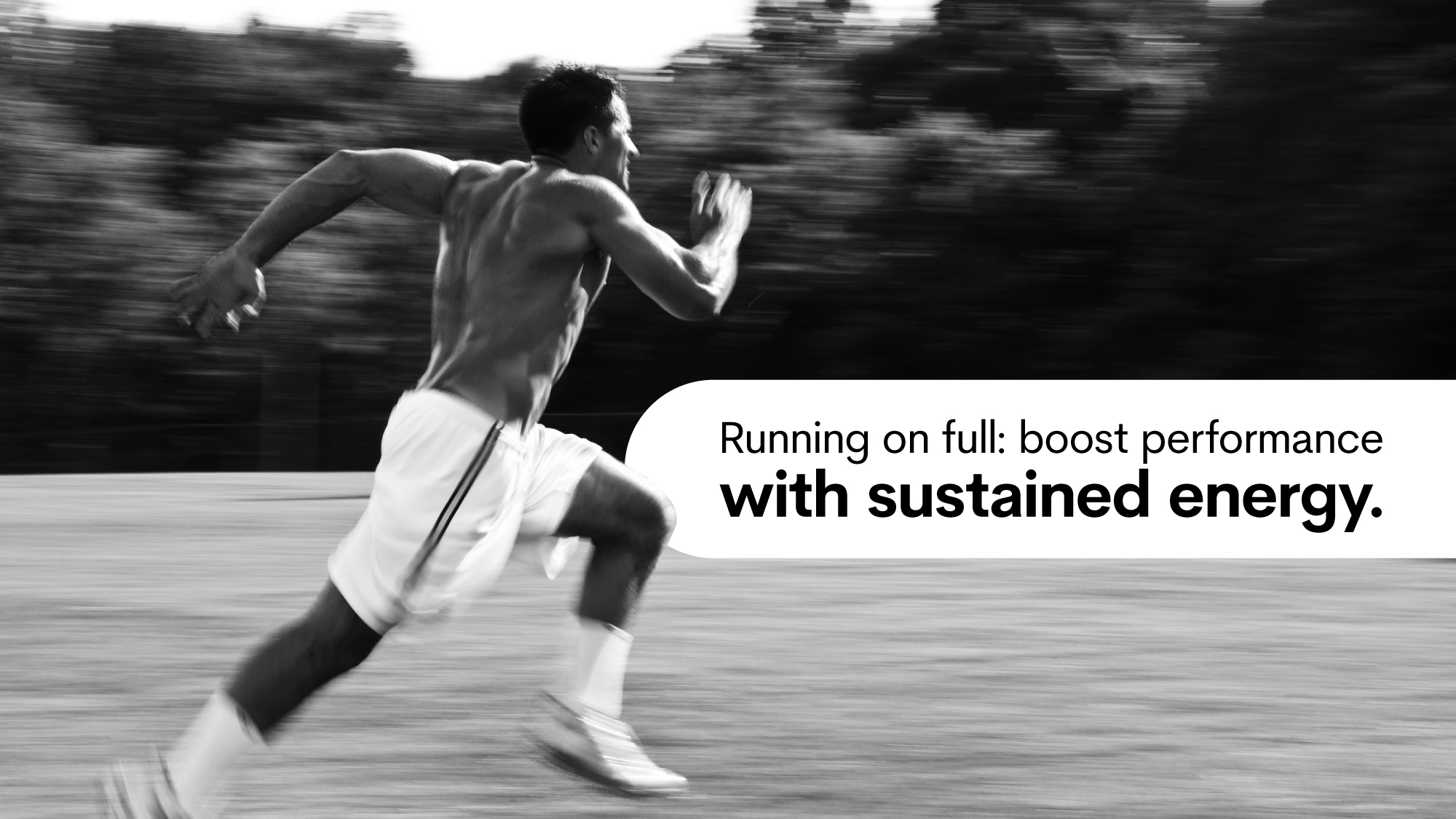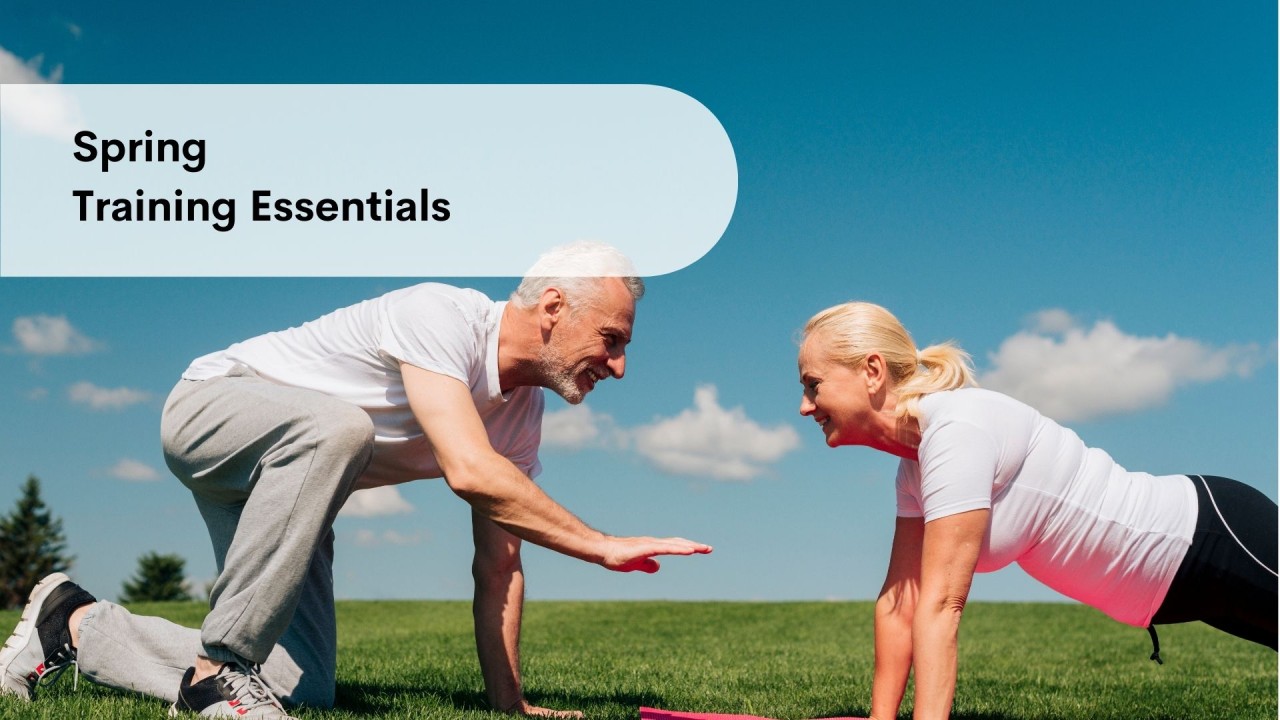Sneezing on the stairmaster? Coughing while kickboxing?
Immunity tends to act sluggish after periods of heavy workouts or sports performance. Overall, it’s trying to simply catch up because physical stress temporarily impairs its function, allowing for opportunistic “bugs” to set up shop. Many studies have shown that reactive oxygen species (ROS) and their byproducts dramatically increase after moderate to high-intensity exercise; ROS is a type of free radical that can suppress normal immune function.
Sustaining an optimal functioning immune system is critical for those who enjoy fitness and for athletes both amateur and professional. A perennial favorite to keep immunity strong is vitamin C. In one survey, 60% of respondents said they take vitamin C specifically to protect and improve their immune function. 1
Active consumers are integrating immune-protection products into their sports/active lifestyle supplement routines. According to Nutrition Business Journal’s Immune Health Special Report, “Consumers are more likely to see immunity as a product of lifestyle, including exercise. With consumers connecting immunity with lifestyle choices, immune health could be ready to be marketed outside the cold/flu/immunity category” — for example, “sports nutrition with an immunity boost.” 1
Another NBJ survey asked consumers who use hydration products what their main reasons are for doing so. “Support my immune system” ranked number two at 15%. 2
Regular users of sports nutrition products report they consume these products to improve their general health (63%), to address a nutrition deficiency (39%), and to address a specific health condition, eg, immunity (32%). 3
In the EU, European Commission Directorate General for Health and Food Safety allows claims for vitamin C consumption that include “contributing to the normal functioning of the immune system during and after intense physical exercise.”
Active lifestylers, more serious fitness enthusiasts and athletes can attain more benefits from vitamin C that support their physical exercise and competition, according to the European Commission. These include “contributes to normal energy-yielding metabolism, contributes to normal functioning of the nervous system, contributes to normal collagen formation for the normal function of cartilage and contributes to the reduction of tiredness and fatigue.”
A systematic review looked at the effects of vitamin C supplements on oxidative stress, soreness, musculoskeletal function and inflammatory markers after one cycle of exercise. After analyzing a total of 28 studies with 313 healthy participants researchers concluded that exercise-induced interleukin-6 response was attenuated 2 hours after exercise in those who supplemented with vitamin C. It also was found to immediately reduce lipid peroxidation. 4
How Much C is Too Much
The pre-eminent biochemist Dr. Linus Pauling claimed to consume 18,000 mg per day of vitamin C, but that may be a bit too much. Up until recently, the recommended daily allowance (RDA) for vitamin C was 60 mg daily. In the US and Canada currently, the RDA for vitamin C has increased to 75 mg for women and 90 mg for men. However, previous research suggests that the minimal intake of 90 mg per day may not be optimal, and might reduce the body’s ability to respond to stress. For adults, doses up to 2000 mg/day may be considered safe.
The challenge is not so much the dosage amount but how long vitamin C can stay in the body and thus be effective: previous research has shown that 56% to 80% of a 400 mg vitamin C dose was excreted because of rapid ascorbate clearance or elimination. Therefore, taking several smaller doses or a single slow-release dose of vitamin C each day is preferable to a single dose of more than 200 mg.
The key advantage of a sustained-release vitamin C is a reduced number of dosages required per day, which greatly improves compliance.
A Superior C
Undeniably, there is a powerful association between vitamin C supplements and immune resilience. And because convenience is a priority consideration when purchasing vitamin C, the ideal C would provide an optimal level that is released (and therefore useful) for most of the day in one single daily dose.
C-Fence is that hero vitamin C ingredient. A pharmacokinetic study on C-Fence demonstrated that it can provide all-day sustenance. The randomized placebo-controlled study assessed bioavailability of vitamin C in the plasma of 18 participants who consumed a single 500 mg dose of vitamin C as C-Fence.
The results showed that vitamin C was well absorbed and that levels of vitamin C were sustained well above the baseline values for the entire 24-hour study duration. The average time to achieve maximum levels in plasma was about 4.5 hours, in contrast to the typical 2- to 3 hours seen with immediate-release formulations.
The researchers also discovered that vitamin C plasma concentrations remained at much higher levels in the baseline group and even the peak concentration in the placebo group at 12, 16, and 24 hours post-dose. The authors concluded, “Taken together, these findings confirm the slow and sustained-release characteristic of the tested novel formulation.” 5
Beyond pre-workouts and protein powders, supplements that support exercise-related health concerns such as protecting and promoting healthy immune function will likely generate high interest and repeat purchases. Adding C-Fence to either or both pre- and post-workout supplements is a powerful idea.
References:
- NBJ “Immune Health Special Report” 2020
- NBJ survey of regular sports nutrition supplement users, February 2, 2023
- NBJ “Sports Nutrition and Weight Management Report” 2023
- Camponogara Righi, European Journal of Nutrition 2020 59: 2827–2839
- Shah, Journal of Pharmacology and Pharmacotherapeutics 2022 3(2) 167–174,



